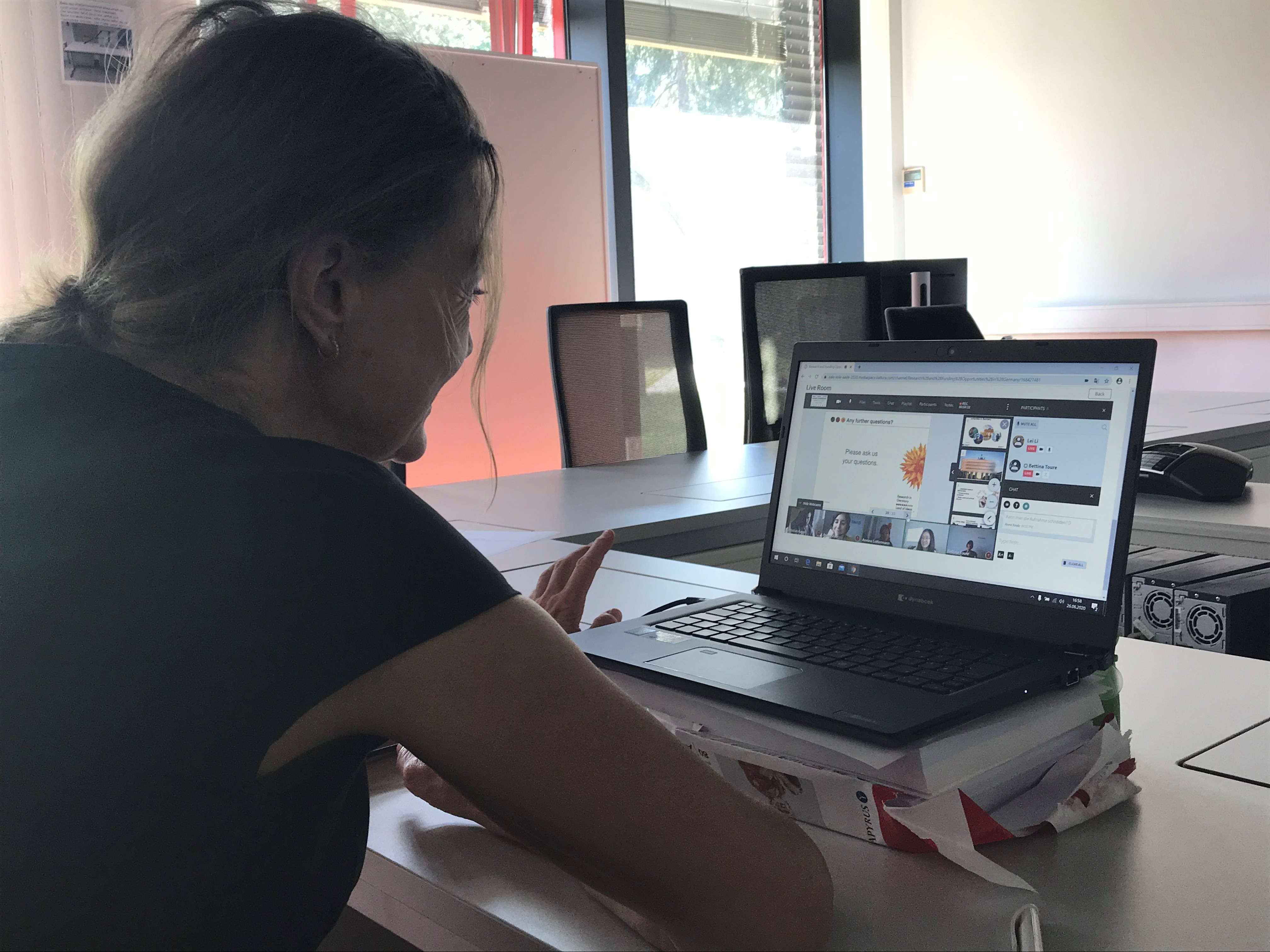Virtual Research in Germany Appearance at the European Association of Labour Economists (EALE) World Conference
(22.07.20) The European Association of Labour Economists (EALE) World Conference was held virtually for the first time between 25 and 27 June 2020, attracting more than 700 participants. Due to the coronavirus pandemic the meeting, which was originally planned as a face-to-face event in Berlin, was quickly converted into a digital event. The conference was centred around labour market research.

Virtueller „Research in Germany“-Auftritt auf der EALE 2020
© DFG
Instead of attending a conference venue, participants accessed an online platform. The individual sessions were presented on clearly arranged tiles. By clicking on the tiles, participants could access the content behind them and were able to listen to specialist lectures transmitted by video and enter into discussions and exchange information with speakers using the live chat function. Labour market economics comprises a wide range of topics and various methodologies. Given the abundance of datasets available worldwide, the sessions were centred around empirical and econometric examinations of the impact of the technological evolution and the globalisation of supply chains on regional and national labour markets, for example. Issues surrounding migration and social inequality in the labour market also attracted a considerable amount of interest. Initial studies related to COVID-19 were also presented and reference was made to the short- and long-term effects. Some of the sessions were also recorded and then made available to participants who did not have the chance to take part in the session.
The Research in Germany initiative presented itself on 26 June 2020 with an online session at the virtual specialist conference. It was the first ever online session by Research in Germany at an international specialist conference. In the course of the session, international labour market researchers were given extensive information about the innovation and research landscape in Germany. Furthermore, representatives from the German Academic Exchange Service (DAAD), the DFG and the Fraunhofer Society presented funding programmes for research visits and research projects in Germany. After the presentation, the international researchers had the opportunity to ask (personal) questions and exchange information with experts using the chat function.
Following the online session, participants had the chance to engage in more in-depth discussions with colleagues from the DAAD, the DFG and the Fraunhofer Society during one-on-one sessions, receive personalised advice during consultations and ask specific questions about the funding programmes of the respective institution. Although only a few people took up this opportunity, those who did asked more detailed questions.
At a conventional conference, the second half of the programme would have been designed as a networking event with a small standing reception. Unfortunately, this did not have a virtual equivalent. All things considered, however, this format was enjoyable for all those involved and demonstrates that an informative exchange is also possible via digital media.